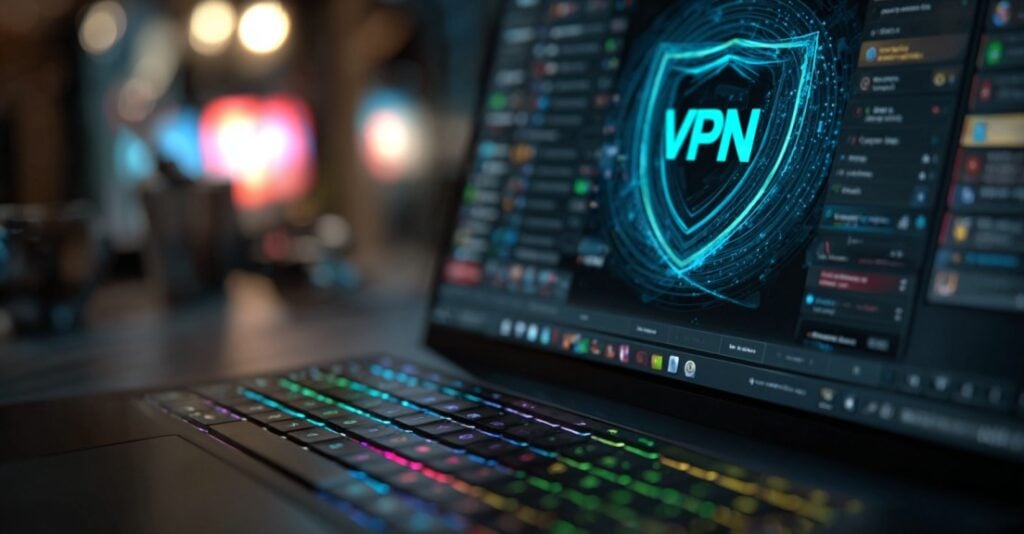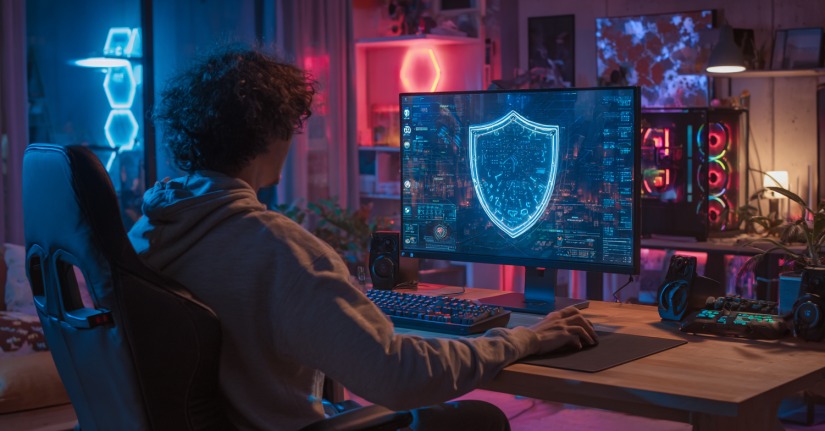Protect your data – hackers shouldn’t get access to your games just because you’re playing devotedly
Blog Jeremy Patterson 12 Sep , 2025 0

Think about it: You’re jumping into a CS:GO match, fully geared with flashbangs and grenades, your team counting on you, when out of nowhere – an opponent with sniper-like precision takes you out instantly. It’s supposed to be a combo of SF-like skill and luck; but it doesn’t feel like it. Instead, it seems you’ve come across an aimbot or a wallhack, or other type of cheater, for they exist and they’re surprisingly widespread. CS:GO, Roblox, CoD, Minecraft, LoL – this world’s most famous games are also hackers’ softest spots. Protect your data. They process fantastic amounts of sensitive user data, they access IPs, they know what in-game items gamers like you prefer, and the list of numerous other opportunities to exploit the system for personal gain just goes on.
From unmerited advantages over other, fair players to access to accounts that are later to be traded on black markets, gaming cheats and hacks have become fully-fledged cybersecurity threats. So, does it mean that you should just go ahead and pray for the best while enjoying your favorite online games, intrinsically anxious about how unscrupulous internet users could affect your gameplay and online integrity? Definitely not! The following sections will guide you on how to safeguard yourself against hacks, exploits, cheat codes, and other common threats in the gaming realm – a necessity that presses now more than ever.
When big is not necessarily better
Big games need large teams dedicated to keeping cheaters at bay, making them more susceptible to being hacked since attackers won’t need to do the impossible to attain their goal. Generally, the hotter a game is, the harder it is to prevent cheating.
One way to figure out which titles are likelier to attract hackers is to check out YouTube videos showing cheats and hacks – the higher the number, the bigger the cheating chances.
Commonly hacked video games
The most hacked online games today include Fortnite, Overwatch, CS:GO, COD, and Destiny 2, being particularly affected by wallhacks (the power enabling the exploiter to see through walls) and aimbots (common in shooter titles like COD and Fortnite, they allow near-perfect shots from a distance).
Titles like the ones mentioned above are troubled by aimbots and wall hacks, which offer unjust advantages over the entire competition and empower exploiters with skills fair gamers can’t tap. And hacking isn’t a negligible issue – lawsuits, bans, and cybersecurity risks are common among some of the world’s most commonly breached platforms. Epic, for instance, sued two gamers, among whom one was only 14 years old, for deploying and endorsing wallhacks and aimbots, and ignited discussions on holding minors legally accountable in gaming. Four years later, Activision declared they’d banned more than 500K accounts due to hack usage.
One of the most scandalous cases involves hack sellers offering subscription-like services with hacks. Many such providers eventually got shut down (some after making fortunes), but fresh profiters keep emerging, and ongoing technological advances make it easier for them to do so.

Protection tips and recommendations
As gaming hacks grow in number and sophistication levels, the necessity to keep your account and games safe increases, too. Staying vigilant, enabling 2FA, using complex passwords, and protecting your email remain all non-negotiables. The latter is even more important if you’ve associated any business email with your gameplay – if you expose an email you use at your workplace and it gets breached or involved in malicious traffic, you’ve just doubled the trouble since your professional life might get attacked, too. Protect your data. Experts advise using a professional, encrypted business email, that uses end-to-end encryption solutions and is secured by some of the toughest privacy protections worldwide – and this extends beyond gaming and into virtually any activity you conduct online. Keeping your business away from anyone’s eyes – even from your email service provider – has never been easier.
Other ways to protect from online video game exploits and hacks include:
- First, ensure your software is either automatically or manually updated, because it’s when everything is up to date that your device and accounts are the safest. Operating systems, antiviruses, and games themselves receive security patches constantly in order to fix vulnerabilities that malicious actors could exploit.
- Reliable security tools like anti-malware and antivirus programs do make a big difference. These two, for instance, can help detect threats, while using a VPN can conceal your real IP address, replace it with a new one, and prevent attacks. Noteworthy, VPNs won’t hide you from GPS, cookies, and other methods used for browser tracking. Another way to safety is to never take invitations from unknown players, avoid clicking suspicious links, and always report cheaters or unusual activity to the game developers.
- Be cautious with third-party software; downloading hacks, mods, or cheats might tempt you, but using unreliable sources might just put your system at risk, as even the most seemingly harmless files can contain malware. Keep your account data safe by never sharing login credentials and remaining vigilant against phishing attempts through email, social media, or fake websites – phishing attacks are very common, with more than 193K U.S. individuals encountering one in 2024.
- Using strong, unique passwords is essential, as is avoiding reusing the same password across multiple accounts, or taking one password and tweaking it slightly, assuming you’d dodge hackers’ bullets. Consider using a password manager to create and store complex combinations, and enable 2FA whenever it’s possible for that extra layer of protection.
- It also helps to limit the data you expose online, taking care not to overshare personal info on commonly used gamer spots such as forums, chats, or social platforms. Moreover, consider adjusting your in-game privacy settings to keep your account secure.
- Always stick to official game stores when buying games or updates, no matter how credible other sources might seem. Platforms like Steam, Epic Games, or the PlayStation Store offer the real deal and ensure you receive authentic files and minimize the risk of downloading compromised content.

Endnote
Hacks are everywhere and are increasingly sophisticated, but you can also stay on top of your gaming safety. Protect your data. Just ensure you have a set of rules in place, such as following the tips explained above and maintaining a healthy dose of vigilance.













